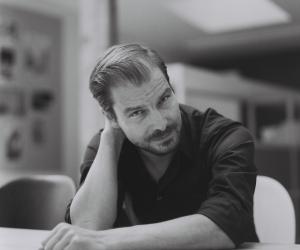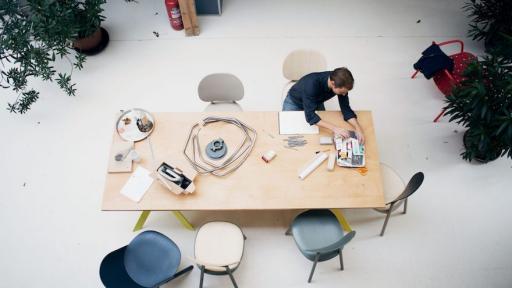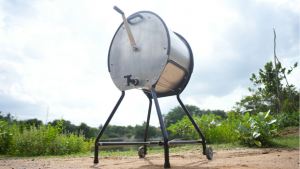When you’re working with companies that have no manufacturing experience, you as the designer have to show them the possibilities, said Stefan Diez.
The German industrial designer presented his alternative furniture projects at Design Indaba Conference 2017. For him, testing the limits by designing process as well as the object is an award-winning combination.
“A big part of my motivation is to figure out the limitation of what is possible nowadays,” he said. “In this way, I figure out what defines our lives.”
But how does an object, like a chair or a bench, define how we live? According to the master craftsman, it’s as much about the process as it is about the finished product. To illustrate his point, Diez debuted Soba, a flat-pack furniture line made in collaboration with Japan Creative.
The nonprofit, Japan Creative champions age-old Japanese crafting and manufacturing methods by teaming up with international artists to create new works using traditional techniques or materials.
For Soba, Diez created a trestle and an accompanying bench using untreated bamboo. The furniture pieces can be assembled by using a simple kevlar rope.
People have experimented with bamboo for thousands of years, explains Diez, adding: “I thought the only way I could do it as a german designer is by doing it very very basic. So I just took the basic green bamboo, made some simple cuts inside it, and transformed it into a small set of furniture.”
“It’s a beautiful part of my job, I like to do this – working with my hands, experimenting,” he adds later in his presentation.
He also details the process behind a comprehensive solo exhibition at the MAKK Museum in Cologne, which ran until June 2017. The exhibition spans the last 15 years and provides detailed insight into the workshop and design approach of the Munich-based maker.
In addition to luminaires, furniture and everyday objects that Diez designed for manufacturers like e15, Thonet, Hay, Wilkhahn and emu, the exhibition also features ongoing projects such as the Guise luminaire for Vibia, the Bandit table for e15 or the D1/D2 chairs for Wagner. A special section of the show is dedicated to ‘invisible’ projects that have never gone into production.









